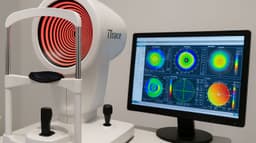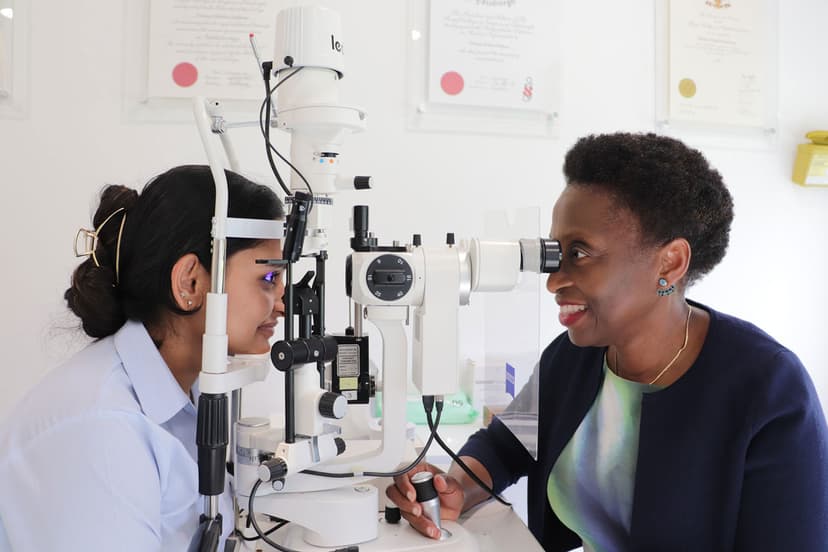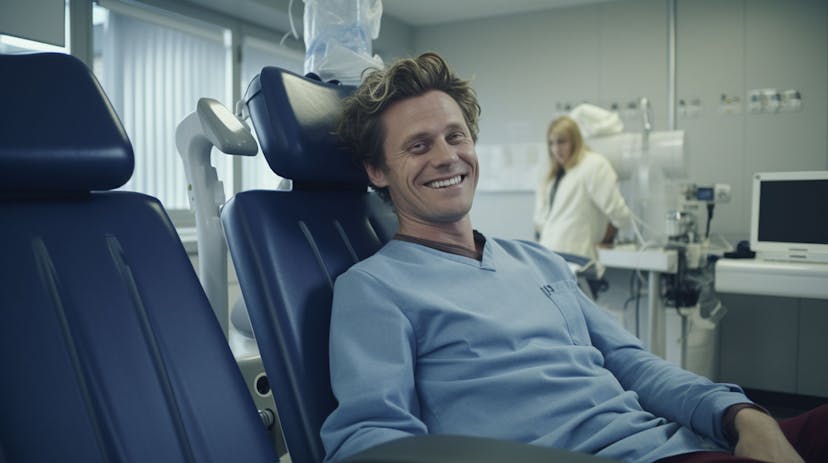
30 Reasons Why You Shouldn't Fear Cataract Surgery
One of the primary reasons individuals may experience anxiety about cataract surgery is a fear of the unknown. The prospect of undergoing any surgical procedure, especially when unfamiliar with the process, can be inherently daunting. Additionally, concerns about potential pain during or after the surgery can further contribute to this apprehension. It's important to note, however, that modern surgical techniques and the use of local anaesthesia have significantly minimised discomfort associated with cataract surgery.
Worries About Complications And Outcomes
Another source of anxiety revolves around concerns about potential complications. Despite cataract surgery being a routine and generally safe procedure, there may still be apprehensions about rare instances of unforeseen issues. Additionally, individuals may worry about the overall outcome of the surgery and whether it will successfully improve their vision. This fear of potential disappointment can loom large in the minds of those considering the procedure.
Loss of Control And Previous Experiences
Feeling a sense of loss of control is a common trigger for anxiety, particularly when it comes to medical procedures. Being in an operating room and relying on medical professionals for care can be an intimidating experience for some. For individuals who have had previous negative experiences with medical procedures or surgeries, these memories can resurface and contribute to heightened anxiety about undergoing cataract surgery. Past encounters with discomfort, complications, or general unease in a medical setting may influence how a person approaches the prospect of surgery in the future.
30 Reasons Why You Should Consider Cataract Surgery
- Proven Success: Cataract surgery is one of the safest and most successful surgical procedures in modern medicine. With advanced techniques and experienced surgeons, the risk of complications is extremely low.
- Improves Vision: Surgery effectively removes the cloudy lens, significantly improving vision.
- Minimal Discomfort: Modern cataract surgery is performed under local anaesthesia, which means you'll be awake but won't feel pain. Most patients report little to no discomfort during the procedure.
- Short Procedure: The surgery itself is typically quick, often taking less than 30 minutes to complete. This means you'll be in and out of the operating room in a short amount of time.
- Local Anesthesia: It's usually performed under local anaesthesia, eliminating the need for general anaesthesia.
- Outpatient Procedure: Most cataract surgeries are outpatient, allowing you to return home the same day.
- Rapid Recovery: Patients often experience significant improvements in their vision shortly after the surgery. Many notice clearer vision almost immediately, with continued improvement over the following days.
- Reduced Dependence on Glasses: Many patients experience reduced dependence on glasses or contacts after cataract surgery.
- Improved Quality of Life: Restoring clear vision enhances overall quality of life and daily activities.
- Enhanced Safety: Improved vision reduces risks associated with impaired eyesight, like accidents and falls.
- Low Complication Rate: Cataract surgery has a low rate of complications when performed by experienced surgeons.
- Advanced Technology: Modern surgical techniques and equipment ensure precision and safety.
- Customised Lenses: Multifocal and toric lenses can be used to correct astigmatism and provide clear vision at various distances.
- Improved Night Vision: Many patients experience better night vision after cataract surgery.
- Well-Tolerated: The procedure is generally well-tolerated, even by older adults.
- Immediate Visual Feedback: You'll likely notice improvements right after surgery, providing instant gratification.
- Routine Procedure: Cataract surgery is a routine procedure performed millions of times globally each year.
- Non-Invasive: The surgery involves no incisions or stitches in most cases.
- No Long-Term Maintenance: Once the cataract is removed, it doesn't grow back.
- Reversible: If needed, certain aspects of the procedure can be adjusted in follow-up visits.
- Low Risk of Infection: Stringent surgical protocols minimise the risk of post-operative infection.
- Customised Care: Surgeons tailor the procedure to each patient's unique needs and preferences.
- Restores Colours: Removing cataracts often restores vividness to colours that appeared faded.
- Empowering Independence: Regaining a clear vision promotes self-reliance and independence.
- Immediate Resumption of Normal Activities: You can usually resume normal activities shortly after surgery.
- Improves Mental Health: Clear vision contributes to improved mood, mental well-being, and overall happiness.
- Long-Lasting Results: The effects of cataract surgery can last a lifetime.
- Continuous Advancements: Ongoing research and advancements in surgical techniques lead to even better outcomes.
- Follow-Up Care: Comprehensive post-operative care ensures optimal healing and visual outcomes.
- Professional Guidance: Skilled ophthalmologists provide personalised care and address any concerns throughout the process.
Remember, cataract surgery is a widely performed and highly successful procedure that can significantly enhance your vision and quality of life. Trusting in the expertise of your medical team and understanding the benefits of the surgery can help alleviate any fears or concerns you may have.

How Can My-iClinic Help With Anxiety?
An eye clinic can play a crucial role in alleviating anxiety for patients facing cataract surgery or other eye-related procedures. Here are several ways in which an eye clinic can provide support:
Education And Information
Providing detailed, clear, and accurate information about the surgical process, including what to expect before, during, and after the procedure, can help demystify the experience and reduce anxiety.
Pre-Surgery Consultations
Offering one-on-one consultations with the surgeon allows patients to ask questions, express concerns, and receive personalised reassurance. This helps establish trust and open communication.
Transparent Communication
Clear and transparent communication about the risks, benefits, and potential outcomes of the surgery helps manage expectations and dispel any misconceptions that may contribute to anxiety.
Introduction To The Surgical Team
Familiarising patients with the members of the surgical team, including the surgeon, anesthesiologist, and nursing staff, can help establish a sense of familiarity and trust.
Patient Comfort Measures
Ensuring that the clinic environment is welcoming, calming, and comfortable can help put patients at ease. This includes considerations such as comfortable seating, soothing decor, and a friendly atmosphere.
Comprehensive Pre-Operative Assessments
Thorough pre-operative evaluations ensure that patients are well-prepared for the surgery. This includes reviewing medical history, conducting necessary tests, and addressing any specific concerns.
Addressing Financial Concerns
Offering clear information about costs, insurance coverage, and potential payment plans can help alleviate financial worries, which can be a significant source of anxiety for some patients.
Options For Anaesthesia
Discussing the type of anaesthesia used during the surgery and addressing any concerns about sedation can help ease anxiety related to the surgical process.
Post-Operative Care Instructions
Providing clear, written instructions for post-operative care at home can help patients feel more confident and prepared for the recovery process.
Access To Support Resources
Offering resources such as brochures, videos, or access to online forums or support groups can provide patients with additional information and a sense of community.
Follow-Up Appointments
Scheduling follow-up appointments after the surgery allows for continued monitoring of the patient's progress, addressing any concerns, and providing reassurance about the healing process.
Emotional Support
Recognising and addressing the emotional aspect of surgery is crucial. Offering empathetic and compassionate support can go a long way in reducing anxiety and building trust.
By prioritising patient education, open communication, and emotional support, an eye clinic can help create a positive and reassuring experience for patients facing eye-related procedures. This comprehensive approach helps address both the physical and emotional aspects of surgery, ultimately reducing anxiety and promoting a smoother recovery process.
Rediscover Clarity And Embrace Life With My-iClinic's Cataract Surgery in London!
Are cataracts clouding your world? My-iClinic offers state-of-the-art cataract surgery in the heart of London, providing you with a clear path to a vibrant vision and a brighter future.
Why Choose My-iClinic for Your Cataract Surgery?
- Our skilled surgeons, backed by years of experience, employ cutting-edge techniques to ensure your procedure is safe, precise, and tailored to your unique needs.
- My-iClinic harnesses the latest in medical technology, ensuring you receive the highest standard of care for your vision.
- We understand that every patient is unique. Our team takes the time to listen, answer your questions, and guide you through every step of your cataract surgery journey.
- Experience a rapid visual recovery and enjoy the long-lasting benefits of improved vision, allowing you to live life to the fullest.
Don't Let Cataracts Hold You Back. Take the First Step Towards Clearer Vision Today!
Contact My-iClinic or schedule your consultation. Let's embark on this journey to a better vision together! Discover the My-iClinic difference and see the world with newfound clarity. Your brighter tomorrow starts here.
Find out more by Speaking to our team









